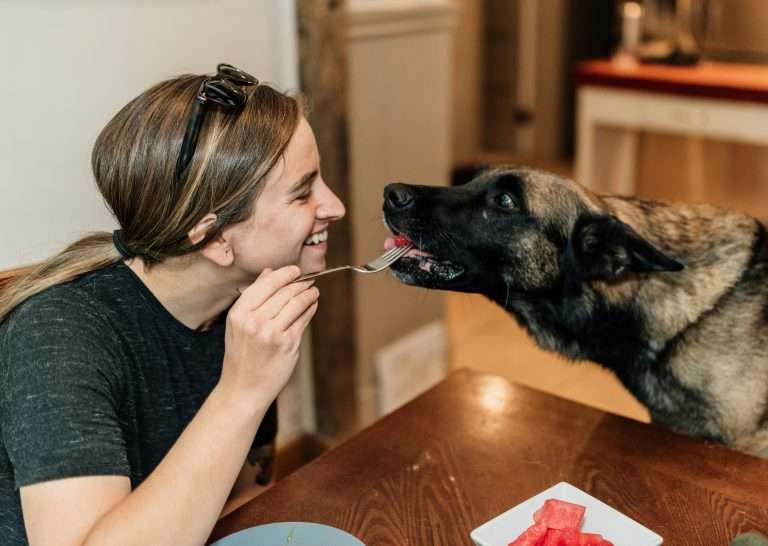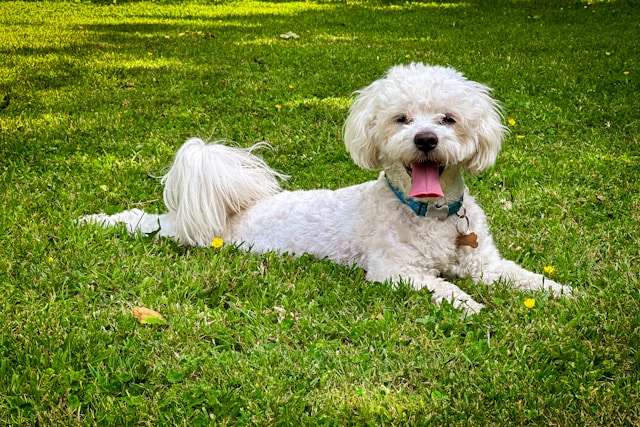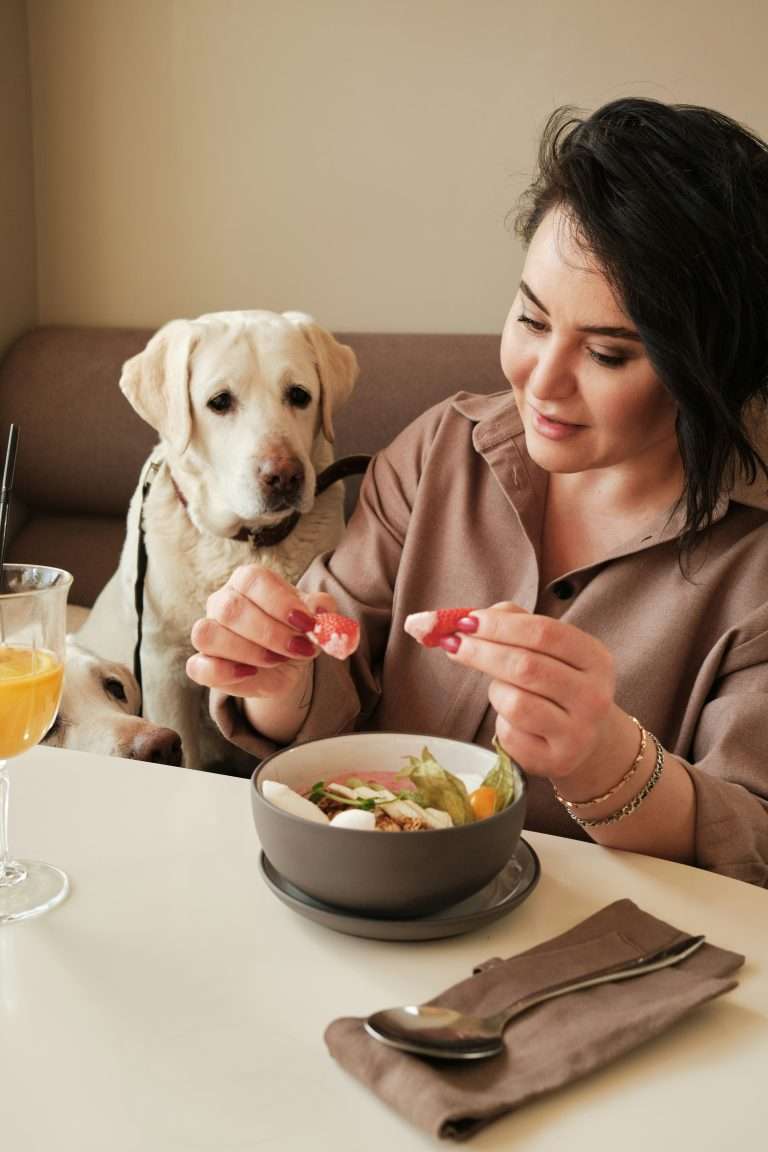Yorkies as Family Dogs: Debunking Common Myths

Some folks think Yorkies aren’t great family dogs because of their size or temperament. But is that true? Many of these beliefs are based on outdated ideas or misinformation. This post will tackle common myths and help you see why Yorkies can be an excellent fit for families. Learn more about popular family-friendly breeds here.
Yorkies are one of the most popular small dog breeds but are often misunderstood. Plenty of myths make people question their suitability as family pets, from their size to temperament. Are Yorkies good with kids? Can they handle the chaos of a busy household? In this post, we’ll clear up the confusion and reveal the truth about these lovable little companions.
Key Takeaways
Yorkies can be great family dogs with proper training. They’re loving, energetic, and gentle around kids. They need patience, attention, and supervision due to their small size, especially with younger children. Socializing early reduces clinginess and boosts confidence. Myths about them being overly delicate or unsuitable for families aren’t valid with proper care.
Table of Contents
Understanding the Yorkshire Terrier
Yorkshire Terriers, or Yorkies, may be small, but they offer a big personality wrapped in a tiny package. To understand why they’ve become such beloved companions, let’s explore their origins, appearance, and traits that make them unique and well-suited for family life.
History and Origin
Yorkshire Terriers originated in 19th-century England, where they were bred to assist in rodent control in textile mills and coal mines. Despite their aristocratic appearance today, these dogs have working-class roots. Their ancestors, such as the Clydesdale Terrier, were more prominent and known for their scrappiness and determination.
Over time, selective breeding refined their size and coat, leading to the elegant companion we know today. They were officially recognized as a distinct breed by the late 1800s, quickly gaining popularity as lap dogs for Victorian-era families. Their history is a testament to their adaptability—hardworking yet capable of charming anyone with their poise.
Physical Characteristics
Yorkies are tiny, usually weighing 4-7 pounds, making them one of the most miniature toy breeds. Their compact size and portability are part of their appeal for families and city dwellers alike.
Their silky, straight coat, often compared to human hair, truly sets them apart. Their signature blue-and-tan coloring gives them a sophisticated look, but it comes with upkeep. Regular grooming is essential to maintain that luxurious shine.
Physically, Yorkies are well-proportioned with a compact body and an alert expression that gives them a confident demeanor. Their pointed ears and dark, sparkling eyes add charm, making them look like perpetual puppies. Don’t be fooled by their small stature—this breed moves purposefully and carries pridefully.
Temperament and Behavior
Despite their dainty appearance, Yorkies are known for their feisty and spirited personalities. They’re confident, curious, and love to be the center of attention. Think of them as a big dog in a small body—they’ll protect their territory with surprising boldness.
Yorkies are affectionate with their families and thrive on companionship. They form strong bonds with their owners and are happiest when included in daily activities. While they’re great with older kids who handle them gently, they might not have the patience for very young children unless adequately socialized.
At their core, they’re curious explorers who love to investigate their surroundings. They may have a stubborn streak, but consistent training helps channel their energy positively. In a household where their intelligence and loyalty are appreciated, Yorkies can be endearing family members who bring laughter and love.
Myth 1: Yorkies are Not Suitable for Families
Yorkies often get a bad reputation for being family dogs, primarily because of their size. Many assume they’re too small, fragile, or independent to thrive in a family setting. However, this couldn’t be further from the truth. Let’s break this myth and discover why Yorkies can be a fantastic addition to your household.
Size Does Not Determine the Ability to Bond
You might think a dog as small as a Yorkie wouldn’t connect well with a bustling family, but nothing could be further from reality. Yorkies are known for their deep attachment to their humans. They aren’t just cute companions—they’re natural snugglers who crave attention and interaction from all family members.
Despite their tiny build, these pups have enormous hearts. They can form strong emotional connections with kids and adults alike. Have energetic children? Yorkies are ready to match their enthusiasm for playtime at every turn, chasing toys or even joining a hide-and-seek game. On quieter days, they’re just as eager to curl up on the couch for family movie night, happy to play the role of lap warmer.
Key takeaway: A dog’s size doesn’t define their capacity for love or loyalty. Yorkies’ bold and affectionate nature helps them bond with families of all shapes and sizes.
Socialization and Adaptability
Every dog’s behavior reflects their environment and upbringing; Yorkies are no exception. Investing time in proper socialization can help your Yorkie adapt seamlessly to family life. Starting young is key—expose them to new situations, sounds, and people as early as possible. This helps teach them how to handle everything from kids’ laughter to the doorbell’s chime.
Yorkies are surprisingly adaptable for such a small breed. They can quickly learn patience, develop good manners, and fit into family routines with consistent training. Are you worried about their reaction to rowdy kids? When trained correctly, Yorkies learn acceptable behaviors while maintaining their playful spark.
Here are a few tips to make socialization easier:
- Introduce them to family and friends early and often to build confidence around strangers.
- Teach kids how to handle small dogs gently to prevent accidents and build trust.
- Encourage calm interactions during feeding and resting times.
When you give them time to adjust and reward positive behavior, Yorkies thrive in family settings. They’re curious, bright, and always ready to learn the rules of their pack—your family.
Myth 2: Yorkies Are Aggressive or Yappy
Yorkies often get an unfair reputation for being aggressive or overly vocal. While these traits sometimes appear, they’re not the breed’s defining characteristics. Like any dog, their behavior is shaped by their environment, training, and socialization. Understanding the root causes of barking and occasional assertiveness can go a long way in building a better relationship with your Yorkie.
Understanding Yorkie Barking Behavior
Yorkies are known to bark frequently, but this doesn’t mean they’re inherently yappy. Instead, barking is often their way of communicating, much like a person raising their voice to grab attention or voice concerns. Yorkies are naturally alert, which stems from their historical role as ratters, and they often sound the alarm when something feels unfamiliar or out of place.
Common reasons Yorkies bark include:
- Alerting to noises: They’re sensitive to sounds and may bark at the doorbell or a passing delivery truck.
- Seeking attention: They might vocalize their need for the company if ignored.
- Boredom or energy: Barking can become an outlet without enough stimulation or play.
To handle their vocalizations, focus on training and creating structure. Teach your Yorkie commands like “quiet” or “enough,” rewarding them for calm behavior. Avoid yelling at your Yorkie to stop barking—it might confuse or even encourage them, as they see it as you join in. Instead, stay consistent and calm when redirecting their attention.
Engage them with puzzle toys, daily walks, and interactive play. These activities help burn off energy, keeping their mind distracted and barking minimal. By understanding why your Yorkie barks and addressing the root cause, they can be surprisingly manageable.
Training to Minimize Aggression
While Yorkies can sometimes display bossy or assertive behavior, labeling them as aggressive isn’t accurate. Aggression is usually a response to fear, insecurity, or poor socialization rather than a reflection of their overall temperament. This is why addressing these triggers through proper training is essential.
Here are practical tips to reduce signs of aggression and improve behavior:
Start early socialization: Introduce your Yorkie to different people, other pets, and new environments as soon as possible. Positive early experiences help prevent fear-based reactions later.
Teach clear boundaries: Establishing yourself as a calm and consistent leader helps your Yorkie understand their role in the family. Use firm but gentle training methods—physical punishment or yelling can increase insecurity and worsen aggression.
Reward positive behavior: Reinforce good manners with treats, praise, or affection. If your Yorkie reacts calmly to a new situation or follows a command, celebrate their success.
Identify triggers: Pay attention to what sets off aggressive behaviors. Is it food, toys, or strangers? Identifying the root cause makes it much easier to address specific issues through targeted training.
Consider professional help: If unwanted behavior persists, consult a dog trainer or behaviorist. They can provide expert advice tailored to your Yorkie’s needs.
Yorkies are naturally bold, but this doesn’t mean they can’t learn patience. With consistent training, most behavioral issues, including barking and aggression, can be minimized. These little dogs may be spirited, but with care and understanding, they become delightful companions who add joy to family life.
Myth 3: Yorkies Require Excessive Grooming
Yorkies are often admired for their glamorous, silky coats, but this leads many to believe they demand endless grooming. While they need regular maintenance to look their best, the idea that Yorkies are grooming-intensive is exaggerated. Keeping them neat and healthy is manageable for most pet owners with the proper routine and tools.
Grooming Basics for Yorkies
Yorkies’ coats resemble human hair—fine, straight, and silky—which makes their grooming needs unique compared to other breeds. A dedicated schedule and the right tools will keep their coat looking sleek with less fuss than you might think. Here’s a simple grooming guide for Yorkies:
Daily or Every Other Day
- Brushing: Their coat is prone to tangles, especially if kept long. Use a pin or slicker brush to prevent mats and keep their coats smooth.
- Face Cleaning: Wipe around the eyes and mouth with a damp cloth or pet-friendly wipes to remove debris.
Weekly
- Bathing: Bathe your Yorkie once a week with a gentle dog shampoo and conditioner. Avoid over-washing, as this can dry out their skin.
- Ear Cleaning: Check their ears weekly for wax buildup or redness. Use a vet-approved cleaner if necessary.
Monthly
- Nail Trimming: Their small nails proliferate, so trim them to avoid overgrowth. Aim to do this every 3-4 weeks.
- Hair Trim: If you prefer a shorter coat, schedule a professional grooming session or learn basic trimming techniques for upkeep.
With a consistent routine, you’ll avoid time-consuming tangles and knots, making grooming less chore.
Maintaining a Healthy Coat
A Yorkie’s coat isn’t just for looks—it indicates their overall health. Proper care and attention go a long way in keeping their hair shiny and manageable.
- Hydration and Diet: Beautiful coats start from within. Ensure your Yorkie eats a balanced diet of omega-3 and omega-6 fatty acids. These nutrients promote skin elasticity and a smooth coat.
- Detangling Spray: A light coat conditioner or detangling spray can help minimize knots, especially if they’re active and playful.
- Regular Haircuts: If maintaining a long, floor-length coat feels overwhelming, opt for the practical “puppy cut.” This shorter style is easier to care for and gives them a cute, tidy appearance.
- Seasonal Considerations: During winter, dry indoor heating can strip moisture from their coat. Use a humidifier or leave-in conditioner to keep their hair soft and hydrated.
Finally, grooming doesn’t just keep your Yorkie looking great—it’s also a bonding opportunity. Taking time to brush and pamper them can strengthen your connection and make grooming sessions enjoyable for both of you. Their coat may require attention, but with a little effort, it’s far from an excessive burden.
Myth 4: Yorkies Cannot Be Left Alone
Yorkies have a reputation for being overly clingy, leading many to believe they can’t handle being left alone. While they thrive on companionship, this doesn’t mean they’re incapable of independence. With the right approach, you can help your Yorkie feel comfortable and secure even when you’re not home.
Building Independence in Yorkies
Like many small breeds, Yorkies are prone to developing strong attachments to their owners. This bond is terrific, but it’s essential to teach them that being alone is okay, too. Building your Yorkie’s independence takes consistent training and patience, but it pays off in the long run.
Here are some strategies to help your Yorkie enjoy alone time:
Start small: Begin by leaving them alone for short periods. Even stepping out of the room for five minutes helps them adjust. Gradually increase the time as they grow more comfortable.
Create a safe space: Give your Yorkie a cozy area where they feel secure in your absence. A crate with soft blankets or a small room with their bed and toys works well.
Interactive toys: Puzzle toys or treat dispensers can keep their mind occupied. These distractions make alone time feel like playtime.
- Ignore the drama: It might feel challenging, but avoid making a big fuss when leaving or returning. Acting casually
signals to your Yorkie that time apart is routine.
Stick to a schedule: Dogs thrive on routine. Set consistent times for feeding, walks, and rest. Familiarity with their daily schedule reduces anxiety.
Teaching independence also strengthens your dog’s confidence. With these steps, your Yorkie can learn to view alone time as a chance to relax, not something to fear.
Signs of Separation Anxiety
While Yorkies can learn to be happy on their own, some may struggle with separation anxiety. This condition is common in breeds that are naturally affectionate and people-oriented. Knowing the signs can help you address the issue early.
Common symptoms of separation anxiety include:
- Excessive barking or whining starts shortly after you leave and is often continuous.
- Destructive behavior: Chewing furniture, scratching doors, or tearing items apart.
- House soiling: Sudden accidents, even when they’re house-trained.
- Pacing or restlessness: Visible anxiety, such as nonstop walking or circling.
- Attempts to escape: Clawing at doors or windows to follow you.
If you notice these behaviors in your Yorkie, there are steps you can take to ease their stress:
Practice short departures: Leave for brief intervals and gradually increase the time. Always return calmly.
Desensitize departure cues: Actions like grabbing your keys or putting on shoes can trigger anxiety. Practice these movements without leaving to break the association.
Provide soothing aids: Try tools like calming sprays, anxiety wraps, or soft music. These can help create a relaxing environment in your absence.
Avoid punishment: Separation anxiety is not a result of disobedience. Yelling or scolding only increases your dog’s fear and confusion.
Seek professional help: If anxiety persists, consult a trainer or veterinarian. They may recommend behavior modification or anxiety-reducing supplements.
With consistent effort, most Yorkies can overcome separation anxiety. The key is patience and understanding. While they may miss you when you’re away, a confident and independent Yorkie can manage solo time.
The Role of Yorkies in Family Dynamics
Yorkshire Terriers are more than just adorable companions; they play a unique and impactful role in the family. Their bold personalities, unwavering loyalty, and ability to adapt make them cherished members of households. Let’s explore how Yorkies contribute to family life and debunk the common misconceptions about their role as family dogs.
Companionship and Loyalty
Yorkies are masters of forming close bonds with their families. These little dogs have big hearts and love to be involved in your daily life. Whether curling up on the sofa, following you around the house, or greeting you with endless enthusiasm, their loyalty is unmatched.
Yorkies thrive on attention and affection, often forming deep attachments with every family member. Unlike some breeds that may favor one person, many Yorkies divide their devotion equally. They’re great listeners, mood boosters, and constant shadows who never want you to feel alone.
Their small size makes them ideal for families who want dogs that can adapt to apartment living or smaller spaces. This portability means they’re always ready for adventure—a walk in the park, a weekend road trip, or visiting relatives. Wherever your family goes, your Yorkie is happy to tag along.
In short, Yorkies excel at being loyal companions who stay by your side through thick and thin. They don’t just live in your home—they become part of your life.
Yorkies and Children
Are Yorkies good with kids? The answer depends on the situation and how interactions are managed. While Yorkies are affectionate and playful, their small size requires gentle handling, especially around younger children.
When introducing a Yorkie to kids, setting boundaries for both is essential. Teach children to interact respectfully—no pulling ears or tails, squeezing, or roughhousing. Likewise, socializing your Yorkie at an early age can help them feel more comfortable around noisy, energetic little ones.
Here’s how you can foster a strong relationship between your Yorkie and your children:
- Teach respect: Show kids how to hold, pet, and play with a small dog.
- Supervise playtime: Always monitor their interactions to ensure safety for both.
- Encourage gentle games: Yorkies love fetch and other light activities that aren’t too rough.
For older children who understand how to handle small pets, Yorkies can be ideal companions. They match kids’ energy during play but are just as happy to relax during quiet moments. With the right environment and training, Yorkies can form strong, loving bonds with children, becoming their little protectors and snuggle buddies.
Aversive Myths vs. Reality
Several myths about Yorkies might make families hesitant, but these misconceptions often don’t align with reality.
Myth: Yorkies are too fragile for family life.
It’s easy to assume that their small size makes them weak, but Yorkies are much sturdier than they look. They were originally bred as working dogs, which means they’ve inherited a surprising toughness. While they need careful handling, they’re up for plenty of play and family activities.
Reality: Yorkies are tiny but not delicate. A well-cared-for Yorkie is perfectly capable of keeping up with a busy household.
Myth: They’re yappy and disruptive.
This stereotype stems from their alert nature. Yorkies may bark to signal something they see or hear, but this doesn’t mean they’re constantly noisy. Excessive barking is often caused by boredom or lack of training.
Reality: With proper training and engagement, Yorkies are well-behaved little watchdogs. They notify you of unfamiliar sounds but can learn to be calm when asked.
Myth: Yorkies are too independent to be loyal.
Some believe Yorkies are aloof or indifferent simply because they’re smaller toy dogs. Yorkies are incredibly affectionate and seek constant reassurance from their families.
Reality: Yorkies are highly devoted to their people. They thrive on interaction, making them excellent family companions.
Understanding the truth about Yorkies helps families see how these small dogs can be confident, adaptable, and affectionate pets. By giving them proper training, love, and attention, you’ll unlock a joyful and loyal family member who brings endless happiness to your home.
Conclusion
Yorkies are loving, loyal, and adaptable dogs that can thrive in family environments when given care and attention. Myths about their size, temperament, or needs often misrepresent their true nature. These tiny companions bring prominent personalities, boundless affection, and joy to households of all types.
If you’ve been considering adding a Yorkie to your family, focus on proper socialization, training, and creating routines that fit their active, affectionate personalities. They’re ready to be a dedicated and delightful part of your life. Have you experienced the charm of Yorkies firsthand? Share your thoughts or questions below!
Frequently Asked Questions About Yorkies as Family Dogs
Are Yorkies good with children?
Yorkies can be great with kids, but supervision is key. They’re small and delicate, so rough handling might hurt them or make them feel unsafe. Teach children to be gentle and respectful.
Do Yorkies require a lot of grooming?
Yes, they need regular grooming. Their long, silky coats require brushing to prevent tangles. Regular haircuts also help maintain their coat’s health and appearance.
Are Yorkies aggressive or snappy?
Yorkies can be feisty, but they’re not inherently aggressive. Poor training, fear, or mishandling can make them snappy. Proper socialization from a young age helps them feel secure and less reactive.
Can Yorkies be trained easily?
Yes, but they can be stubborn. They’re intelligent and respond well to positive reinforcement. Be patient, consistent, and use rewards to encourage desired behaviors.
Are Yorkies suitable for families with other pets?
Yes, Yorkies often get along with other pets, but introductions should be done carefully. Their high prey drive may make small animals, like hamsters, a challenge.
Do Yorkies bark a lot?
Yorkies are known to bark, especially if they’re bored or sense a threat. Early training helps reduce excessive barking.
Do Yorkies need a lot of exercise?
Not a lot. A couple of short walks and indoor playtime usually keep them happy and healthy. They’re active but don’t need intense exercise like larger breeds.
Are Yorkies good for first-time dog owners?
Yes, they can be. They’re small, adaptable, and loving. However, their grooming needs and potential stubbornness might require extra effort.
Do Yorkies suffer from separation anxiety?
Yes, they’re prone to separation anxiety because they bond closely with their owners. Gradually teaching them to be alone for short periods can help.
Are Yorkies hypoallergenic?
Yorkies are often called hypoallergenic because they shed very little. However, no dog is 100% allergy-proof, and reactions vary by person.
Can Yorkies live in apartments?
Absolutely. Their small size and moderate exercise needs make them excellent for apartment living. They also don’t need an ample outdoor space to thrive.
Do Yorkies have health issues?
Like all breeds, Yorkies are prone to certain conditions, including dental problems, patellar luxation, and tracheal collapse. Regular vet visits are essential.
Are Yorkies independent?
Not really. They’re very people-oriented and crave attention. If left alone too often, they may develop behavioral issues.
How long do Yorkies usually live?
Yorkies typically live 12 to 15 years with proper care. A balanced diet, regular exercise, and routine vet checks can extend their lifespan.
Are Yorkies fragile because of their size?
They’re small and can easily get injured if handled too roughly or accidentally dropped. Supervision around young children or larger dogs is recommended.







One Comment